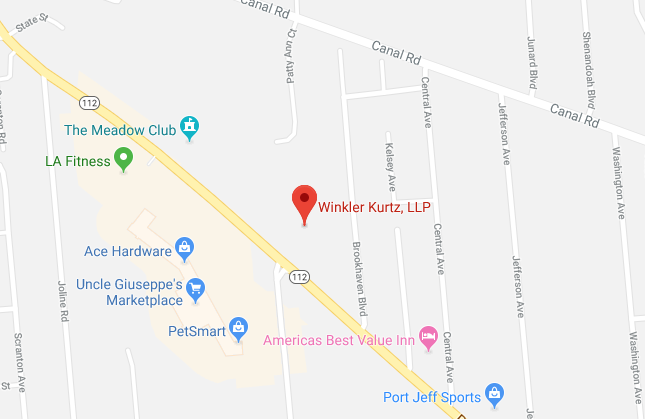 For most people, divorce is a last option. Few (if any) people go into marriage with the expectation that it won’t last. It isn’t surprising, then, that many people become depressed after a divorce.
For most people, divorce is a last option. Few (if any) people go into marriage with the expectation that it won’t last. It isn’t surprising, then, that many people become depressed after a divorce.
A divorce is a major stressor in life. Regardless of how amicable your divorce may have been, your life will significantly change after you divorce. Managing these feelings can be a challenge, particularly as you navigate other adjustments that you have had to make after your divorce.
According to a Long Island divorce attorney, it isn’t unusual to feel depressed after a divorce. Understanding how to cope with depression — and how to overcome it — is critical to moving forward with your life.
How to Manage Depression Post-Divorce
The adjustment period after a divorce can be lengthy, depending on a number of factors, such as the length of time that you were married and what occurred during your marriage. For example, if traumatic events happened such as abuse, it may be more difficult to adapt after a divorce. Similarly, if you were married for 15 years, it may be more of a challenge to get back to normal after a divorce.
The American Psychiatry Association (APA) defines depression as a common medical illness that negatively impacts how you feel, the way you think and how you act. It can cause feelings of sadness and/or a loss of interest in the activities that you once enjoyed. Depression can also lead to emotional and physical problems, and may even limit a person’s ability to function at work and at home.
According to the APA, symptoms of depression may include:
- Feeling sad or having a depressed mood
- Loss of interest or pleasure in activities once enjoyed
- Changes in appetite — weight loss or gain unrelated to dieting
- Trouble sleeping or sleeping too much
- Loss of energy or increased fatigue
- Increase in purposeless physical activity (e.g., hand-wringing or pacing) or slowed movements and speech (actions observable by others)
- Feeling worthless or guilty
- Difficulty thinking, concentrating or making decisions
- Thoughts of death or suicide
These symptoms can be mild or severe, and must last for at least two weeks in order to be diagnosed with depression. Importantly, if you are having suicidal thoughts, you should call the National Suicide Prevention Lifeline immediately at 1-800-273-TALK (8255).
Depression is not uncommon after a divorce. Fortunately, depression is treatable. Medication can help, as can therapy. There are also things that you can do to overcome depression on your own.
If you feel depressed, be sure to seek help. This could be from a medical professional, but also from friends and family members. Talking about how you are feeling can help you process your thoughts. It may also lead to you getting the kind of professional help that you might need, such as medication. Accept help when offered.
It is often tempting when you are depressed to eat comfort foods, abuse drugs and alcohol, and stay home. Doing this may feel good in the moment, but it won’t help you manage your depression. Instead, exercise daily. Just getting outside can help to ease the symptoms of depression. Eat healthy foods, and avoid alcohol and drugs. Treating yourself well can be a first step in overcoming depression.
Next, be sure to take time for self-care. Again, when you are overwhelmed with sadness, you may not want to devote any time to yourself. Spending just a bit of time on yourself — soaking in a bath, getting a massage, or even just going to the movies — can help you feel much better.
You should also try to get plenty of sleep. Depression often makes it hard to sleep, which can then increase feelings of depression. Start a nightly routine that will help you fall asleep at night (such as a meditation or having a cup of herbal tea). Doing these things to relax will allow you to ease into sleep.
Divorce Mediation As a Way to Reduce Conflict
By its very nature, the process of divorce involves conflict. It is often incredibly stressful for the parties involved, particularly when children are involved. While any type of divorce can lead to post-divorce depression, minimizing conflict in a divorce can often lead to more favorable outcomes.
Divorce mediation involves using a neutral third party to help a couple work through the issues in a divorce to help them reach an agreement. It is a form of alternative dispute resolution that is often less expensive, less time-consuming and less stressful than litigation. Because the parties are working together to achieve a common goal, the focus is generally on communication and cooperation — not on who “wins” and who “loses.”
For individuals seeking a divorce, one of the primary benefits of a divorce mediation is that it is generally less difficult emotionally than litigation. This form of resolving a divorce also gives the couple greater control over the outcome, which often leads to both parties getting more of what they wanted in the divorce.
Finally, because divorce mediation tends to cost far less than a trial, there is less financial pressure on the parties after a divorce. This can ease feelings of depression due to having to pay a significant amount of money to attorneys for a trial — and help both parties move forward into their new lives without hostility.
How a Long Island Divorce Attorney Can Help
Divorce is never easy, but there are steps that can be taken to make the process easier for all involved — including the couple and any children who may be involved. Divorce mediation is one such option.
At Winkler Kurtz, LLP, we understand that divorce can be challenging for our clients in many ways. We work collaboratively with our clients to help them achieve their goals. Call us today at 631-928-8000 or contact us online to schedule a consultation with a Long Island divorce attorney.

Leave a Reply
You must be logged in to post a comment.